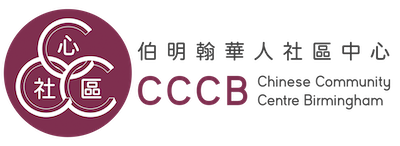This week marks a key moment in our lockdown journey – the Prime Minister has announced a series of lockdown easing rules to take effect from 4 July. The new measures might bring relief for some but for many they bring new challenges.
Whatever situation you’re in, we will continue to support and inform you in the coming months.
NOTE: the new guidance comes into effect on 4th July; until then, the current guidance and regulations apply.
Covid-19 statistics update:
- The number of deaths involving COVID-19 registered in England and Wales in the week ending 12 June 2020 (Week 24) was 1,114 (11.2% of all deaths in that week), the lowest number of deaths involving COVID-19 in the last 11 weeks.
- The estimated number of people with COVID-19 in the community in England was 33,000 at any given time between 31 May and 13 June 2020 (0.06% of the community population).
- Dementia and Alzheimer’s Disease was the most common pre-existing condition found among deaths involving COVID-19
- As of 9am 25 June, there have been 8,710,292 tests, with 167,023 tests on 24 June. 307,980 people have tested positive.
- As of 5pm on 24 June, of those tested positive for coronavirus, across all settings, 43,230 have sadly died.
- 3347 total cases in Birmingham, approximately 293 per 100,000 people. (data from gov.uk, updated Jun 25th)
- 2380 total deaths in hospitals in the West Midlands, as of 24 June.
Covid-19 Alert Levels in England:
- Latest R number range for the UK
0.7-0.9 (Last updated on Friday 19 June 2020.)
- Latest growth rate range for the UK
-4% to -2% per day
- The current alert level is 3, indicating that the virus is “in general circulation – social distancing relaxed”.
- What is a growth rate? Read more here
A series of lockdown easing rules taking effect from 4 July:
- Distancing guidelines
- When it is not possible to stay 2m apart, people should keep a distance of “one metre plus”. It means staying one metre apart, while taking extra precautions such as covering your face to reduce the risk of transmission
- What is allowed to reopen on 4th July?
- Restaurants, pubs and cafes
- Hairdressers
- Libraries
- Community centres
- Bingo halls
- Museums and galleries
- Cinemas
- Children’s playgrounds
- Funfairs and theme parks
- Amusement arcades
- Outdoor skating rinks
- Social clubs
- Model villages
- Places of worship will be able to open for prayers and services, singing will not be permitted.
- Weddings with up to 30 guests
- Holiday accommodation – including hotels, B&Bs, cottages, campsites and caravan parks.
- What must remain closed in England after 4 July?
- Close-contact services such as nail bars will not yet open
- Nightclubs and casinos remain closed, along with bowling alleys, spas, swimming pools, indoor gyms and soft play centres e.g. Wacky Warehouse, Space Hoppas
- Theatres and concert halls will not be able to host live performances
- People in England will be free to stay away from home overnight for the first time since lockdown began in March.
- Government has updated guidance on “Working safely during coronavirus”, including some general advice for all businesses as well as guidance for specific sectors.
Read the guidance here - Meeting other households
- Two households of any size will be able to meet indoors or outside. It will be possible to stay overnight.
- The two households would have to maintain social distancing – unless they were part of the same support bubble.
- The two households do not have to be the same set of households. For instance, it will be possible to meet one set of grandparents one weekend, and the others the following weekend.
- The government does not recommend meetings of multiple households indoors because of the risk of infection.
- Outdoors, people from multiple households will be able to meet in groups of up to six – but two households can meet regardless of size.
- Lockdown will be subject to guidance; regulations will no longer apply therefore the police will no longer have a role in enforcing social distancing measures
Shielding group:
- Shielding to stop at end of July in England
- From 6 July, people who have been shielding will be able to meet up to 5 other people outdoors. They must maintain social distancing rules.
- Form ‘support bubble’ with other households – shielders who live alone or are single parents with children will be able to form a “support bubble” with one other household of any size.
- Support packages will remain in place until the end of July to help people transition.
- This means shielders can return to work from 1 August, if they can’t work from home, as long as their workplace is COVID secure.
- Those shielding will no longer be eligible for statutory sick pay (SSP). However, if they develop coronavirus symptoms, or someone they know develops symptoms, and they are told to self-isolate and cannot work from home, they will be able to claim SSP.
- Free essential food boxes will stop being delivered, but support from NHS volunteers and local councils is still possible.
- Still qualify for priority slots for online shopping
- Will be offered help with medicine deliveries and getting to medical appointments
Other important announcements:
- Human trial of new vaccine begins in UK
- All children in England ‘back to school in September’
- Daily Government press conference scrapped
Advice from NHS on looking after your health and wellbeing:
To help yourself stay well while you’re at home:
- stay in touch with family and friends over the phone or on social media
- try to keep yourself busy – you could try activities like cooking, reading, online learning and watching films
- do light exercise at home or outside – see NHS fitness studio: exercises you can do at home
- consider taking 10 micrograms of vitamin D each day if you’re indoors most of the day – this is to keep your bones and muscles healthy
Test and Trace:
- Anyone who has symptoms of coronavirus (COVID-19) can apply for a free test to check if they have the virus. This is called an antigen test.
- There is another type of test (antibody test) that checks if you’ve already had the virus. This test is not widely available yet. You can find out about antibody testing on GOV.UK
Travel Safety:
- You should avoid using public transport if you can. You should cycle, walk or drive wherever possible. Consider all other forms of transport before using public transport. If you need to use public transport, you should follow the safer travel guidance for passengers
- It is compulsory to wear face coverings on public transport.
International Travel:
- The Foreign & Commonwealth Office (FCO) continue to advise British nationals avoid any non-essential international travel.
- If you have travel plans in the immediate future:
- contact your airline, travel company, cruise line or other transport and accommodation providers
- get in touch with your insurance provider
- For visitors travelling to the UK, they must:
- Provide journey and contact details before travel to the UK – present completed form when arriving at the UK border.
- Visitors may be refused permission to enter the UK (if they are not a British citizen), or fined if they do not provide their contact details or do not self-isolate when they arrive in the UK on or after 8 June 2020.
- Visitors will not be allowed to leave the place of staying for the first 14 days in the UK except in very limited situations (known as ‘self-isolating’)
- May be fined up to £100 if refuse to provide contact details. You may be fined more if you break this rule more than once. You may also be fined up to £1,000 if you refuse to self-isolate, or you could face further action.
The Government has introduced measures to ease lockdown as the number of Covid-19 related deaths has fallen. However, if the mortality rate starts to rise again, lockdown will be tightened again. Therefore everyone has a duty to observe social distancing rules and good handwashing and respiratory hygiene practices.
每周疫情快讯
本周解除防疫封锁措施进入一个关键的阶段-首相宣布了一系列宽松政策,从7月4日生效。新措施可能使某些人松了一口气,但对于许多人而言,它们却带来了新的挑战。
无论你的处境如何,我们在接下来的几个月会继续为您提供支持和更多信息。
注意:新政策将于7月4日生效; 在此之前,当前的指南和规定适用。
疫情统计数据更新:
- 第24周登记的死亡人数中,英格兰和威尔士登记涉及新冠病毒的死亡人数为1114例,占该周所有死亡人数率11.2%。这是过去11周涉及新冠病毒的最低死亡人数。
- 在2020年5月31日至2020年6月13日期间,英格兰社区中估计有新冠病毒的人数为33,000(占社区人口的0.06%)。
- 失智症和老年痴呆症是涉及新冠病毒的死亡中最常见的主要既存疾病。
- 截至6月25日上午9点,已经进行了8,710,292例新冠病毒测试,6月24日进行了167,023例测试。累计确诊案307,980例。
- 截至6月24日下午5点,医院内外全部累计死亡43,230例。
- 伯明翰累计确诊案3347例,每10万人约293例(数据于2020年6月25日更新)。
- 截至6月24日,西米德兰兹郡医院总死亡人数为2380例。
英国五级疫情警报系统:
- 0.7-0.9(资料于星期五6月19日更新)
- 英国的最新增长率范围
每天-4%至-2%
- 目前警报级别为3级,表示“病毒仍然在普遍传播” -但社交距离限制放松。
- 增长率到底是什么? 阅读更多
7月4日开始,如下一系列宽松政策将生效:
- 社交距离
- 两米的规定也将放松,如果两米的安全社交距离不可能的话,维持一米也可以,但必采取额外的预防措施,例如遮住脸部以减少传播的风险
- 7月4日后什么地方允许重新开放?
- 饭店,酒吧和咖啡馆
- 美发店
- 图书馆
- 社区中心
- 宾果游戏场
- 博物馆和美术馆
- 电影院
- 儿童游乐场
- 机动游乐场和主题乐园
- 街机游戏乐场
- 户外溜冰场
- 社交俱乐部
- 示范村
- 宗教场所将可以进行祈祷和服务,不允许唱歌。
- 婚礼最多可容纳30人
- 假日住宿-包括酒店,住宿加早餐旅馆,别墅,露营地和大篷车公园。
- 7月4日后哪些地方保持关闭?
- 多个人接触服务行业,例如指甲店服务等继续封闭,尚未开放
- 夜总会和赌场,保龄球馆,水疗中心,游泳池,室内体育馆和儿童软游戏中心 (例如 Wacky Warehouse, Space Hoppas) 保持关闭
- 剧院和音乐厅将无法举办现场表演
- 人民将有不在家过夜的自由。
- 政府更新了有关“疫情安全工作指南”,包括针对所有企业的一般性建议以及针对特殊行业的指南。在这里阅读指南
- 社交宽松政策
- 两个任何大小的家庭可以在室内或室外聚会,亦可过夜。
- 这两个家庭聚会应保持社交距离-除非他们是同“社交泡泡”的一分子。
- 这两个家庭不必是同一组家庭。例如,一周末会合外公外婆,下一个周末和爹爹奶奶见面。
- 政府不建议多户家庭在室内聚集。
- 在户外,聚会可来自多住,但最多六人一组。要是只两个家庭聚会,家庭户口不论大小都可以。
- 政策宽松, 法规将不再适用。因此,警察将不再具有执行社交距离措施
屏蔽人群:
- 将于7月底停止
- 从7月6日开始,屏蔽者能与一群(最多五人)在户外聚集,但必须保持社交距离规则。
- 与其他家庭形成“社交泡泡’’ – 若屏蔽者是单身或单亲父母, 他们能与其他家庭, 不论户口大小形成“社交泡泡’’
- 对屏蔽保护人群提供支持到7月底,如送食品和药品到家。以助过渡期。
- 这意味着屏蔽保护者从8月1日起可以恢复工作。如不能在家工作,只要他们的机关采取预防病毒安全措施,屏蔽者可以恢复工作。
- 但是,如果他们出现位置,或者认识的人出现症状,被告知要自我隔离并且不能在家工作,他们则可以索取病假工资(SSP)。
- 政府将停止提供送基本食品和药品到家服务,但志愿者和地方议会仍继续提供支持。
- 仍然继续享受在网上购物的优先特权
- 仍获送药单和医疗预约方面的帮助
其他公告:
- 帝国理工疫苗正式进入人体试验阶段
- 英格兰计划所有学生九月返回校园
- 停顿每日政府疫情的发布会
国民保健署(NHS)提供有关照顾您的健康和福祉的建议:
在家保持健康,请尝试以下建议:
- 常与家人和朋友通电或网上保持联系
- 充实时间-可以尝试烹饪,阅读,网上学习和看电影,剧集等活动
- 做户内或户外轻度运动–请参阅NHS健身室:您可以在家做的运动
- 如果您大部分时间都在室内,请考虑每天服用10毫克维生素D –保持骨骼和肌肉健康
测试和跟踪:
- 任何人有症状都可申请免费测试,以检查他们是否患有病毒。这称为抗原测试。
- 另一类型测试为抗体测试,用于检查您是否已经感染了病毒。该测试尚未广泛使用。您可以在GOV.UK上找到更多有关抗体测试的信息
旅行安全:
- 您应尽量避免使用公共交通工具。尽可能骑自行车,步行或开车。在使用公共交通工具之前,请先考虑其他形式。如果您需要使用公共交通工具,则应遵循乘客的安全旅行指南
- 法律规定在公共交通上必戴面罩。
国际旅行:
- 外交和联邦事务部(FCO)继续建议英国国民避免任何不必要的国际旅游。
- 如果您在不久的将来有旅行计划:
- 联络你的航空公司,旅行社,邮轮公司或其他运输和住宿提供商
- 联络你的保险提供商
- 前往英国的游客,他们必须:
- 往英国前,请提供旅程和联系方式-到达英国边境时,呈示表格
- 访客如不提供他们的联系详情,有可能会被拒绝入境(如非英国公民),或者如果他们在2020年6月8日或之后抵达英国时未提供联系方式或未自我隔离,将有可能会被罚款。
- 除了非常特殊的情况下(称为“自我隔离”),不允许访客在英首14天内离开住所
- 如拒绝提供联系详情,可被罚款最高100英镑。
如您多次违反,可受多次罚款。
如果您拒绝自我隔离,可被罚款最高1,000英镑,或面临诉讼
随着冠状病毒相关死亡人数的下降,政府缓解封锁措施。如果一但死亡率再次上升,封锁措施将再次加紧。因此,每个公民都有责任遵守社交距离的规则以及养成良好的洗手和呼吸卫生习惯。

